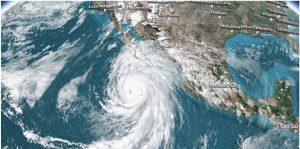India is
likely to see more heatwaves, droughts, rainfall and cyclonic activity over the
next few decades due to climate change, according to the Intergovernmental
Panel on Climate Change (IPCC) report whose first part was published on Monday.
Titled ‘Climate
Change 2021: the Physical Science basis’, the report is compiled by scientists
in collaboration with 195 governments. The IPCC report often forms the basis
for climate-related action on global platforms.
Also Read | Last chance for world to get a grip on climate change, says UK minister
The report
says that heat waves and humid heat stresses will increase in course of the 21st
Century. Both summer and summer monsoon precipitation are likely to increase
with enhanced variability year-by-year.
With regard
to the Indian subcontinent specifically, the report states that “the observed
mean surface temperature increase has clearly emerged out of the range of
internal variability compared to 1850–1900. Heat extremes have increased while
cold extremes have decreased, and these trends will continue over the coming
decades.”
Average and
heavy precipitation will also increase over much of Asia, the report said.
The IPCC
report noted that the southern and southeast Asian monsoon has weakened over
the second half of the 20th Century mainly due to an increase in aerosols and
particulate matter due to human activity.
Also Read | Greta Thunberg features on cover of Vogue Scandinavia, calls out fashion industry
The
dry-north and wet-south pattern of East Asian summer monsoon precipitation
changes are results of the combined effects of greenhouse gases and aerosols,
the report said.
Also Read | Coming, more frequent, intense extreme weather events: UN climate report
“The key
finding of the report is that climate change is a fact, global warming is a
fact and that warming has taken place because of human influence is now well
established,” said Dr Friedrike Otto, the associate director of the Environment
Change Institute of the University of Oxford and one of the authors of the
report.
Dr Otto
further said that certain changes of climate such as rising sea levels and
melting glaciers which can now no longer be reversed.






